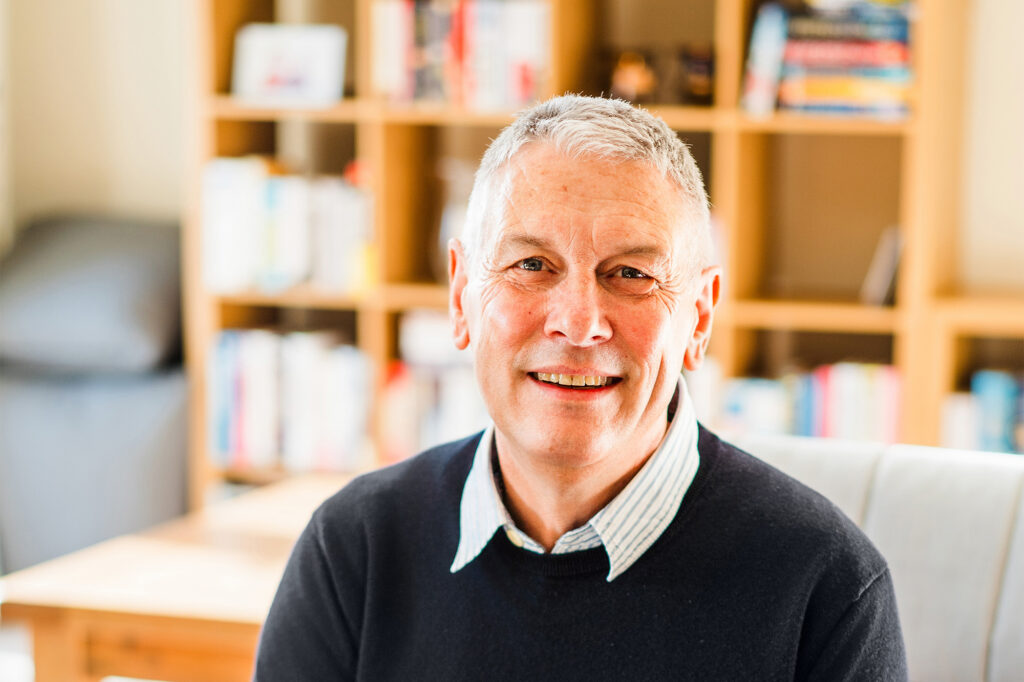
Rowan Williams
During his nine-year tenure as deputy chief pharmaceutical officer for England from 2014 to 2023, Bruce Warner saw two events that had major implications for the supply of medicines to the UK: Brexit and the COVID-19 pandemic.
As a result, Warner knows a thing or two about managing supply issues, which has led to him chairing the Royal Pharmaceutical Society’s (RPS’s) advisory group on medicines shortages. The advisory group is due to publish a report later in November 2024.
Warner is also an honorary professor of pharmacy practice and policy at the University of Nottingham and, previously, held the role of associate director of patient safety at the National Patient Safety Agency.
The Pharmaceutical Journal spoke to Warner from his home in Sheffield to find out more about his work on medicines shortages and whether he thinks the problem is getting worse.
What work is the RPS medicines shortages advisory group doing and what are its aims?
We’ve put together a group of experts from different parts of the supply chain and the policy arena to have a look at the issue of medicines shortages from several different perspectives and we’ll try to pull that all together into a report — with a set of recommendations that we hope will be picked up on and actioned over the coming months and years.
We’re aware that shortages have become an increasingly major issue across the whole supply chain. And, most importantly, we’re getting more and more reports through the media and other routes that patients are being affected, as well as it taking up an increasing amount of time for the healthcare professionals involved. So, the point of the report was to try and pull all of that together to look at things from a supply-and-demand perspective.

Rowan Williams
What was your experience managing medicines shortages during your time as deputy chief pharmaceutical officer for England?
Shortages were never something that I was particularly involved in until we started preparations for leaving the EU. After the referendum in 2016, there was a lot of work done across the whole system around trying to minimise the impact of leaving the EU on the supply of medicines into the UK because nobody really knew what that impact was going to look like.
We were also starting to see medicines shortages. They’ve always been an issue, but they were becoming slightly higher profile at that point. And so, one of the things we did was establish the medicines shortage response group. I chaired that group, with representation from the Department of Health and Social Care (DHSC), NHS England, the regulators, as well as various experts on different levels of the supply chain and healthcare professionals. The objective of that group was around trying to mitigate the impact of medicines shortages on patients if they do happen.
Then we entered the COVID-19 pandemic and that exacerbated problems, particularly with the medicines that we needed to treat people with COVID-19. The other thing that we had done by that point was establish serious shortage protocols, which allowed community pharmacists, under certain restricted circumstances, to make appropriate substitutions when medicines were in shortage. So, we were able to roll through a lot of what we put in place initially, with a view to leaving the EU, into the pandemic.
If we look at the data, we are seeing more medicines shortages … it’s a consequence of us being involved in global supply chains
You also worked in patient safety. Are medicines shortages affecting the safety of patients?
They certainly can and, obviously, every effort goes into trying to make sure that doesn’t happen. However, medicines shortages occur on a spectrum. For example, you might get a shortage in a specialist field — let’s say a very specialist cancer medicine that might affect relatively few people but has a very high impact, as it’s critical to that patient’s care. Or it might be medicines that we use in a huge volume. Let’s take a statin shortage, for example — the immediate impact may not be quite as critical, but it could affect millions of patients. And so, the impact on the system is absolutely huge, and in the long term, of course, it could well have an effect on patients.
An example of a nightmare scenario is one that we saw a few years ago, when there was a shortage of auto-injectors — EpiPen in particular. If people who need it don’t get it, it could potentially be life threatening, and it’s used in a relatively high volume, so that was the perfect storm. I remember the Medicines and Healthcare products Regulatory Agency, DHSC, everybody, did everything they possibly could to make sure that patient safety wasn’t put at risk of it, but that was quite scary.
You mentioned the impact of Brexit earlier, but are there any other factors contributing to medicines shortages and are they getting worse?
If we look at the data, we are seeing more medicines shortages. The report we’re writing for the RPS will go into the detail of that, but it’s a consequence of us being involved in global supply chains. When we see a medicines shortage, we see it across the world, which, of course, makes it slightly more difficult to manage because everybody’s chasing the same stock. Having said that, the majority of medicines that are potentially in shortage are managed, and the teams that work on those are a victim of their own success because if they do their job well, nobody ever knows about the shortage. Now, that isn’t possible in every case, and the few that you can’t manage become critical and are the ones people notice, but I want to stress that the vast majority of shortages are managed well and don’t affect patients.
Where do you think the weaknesses are in the medicines supply chain? Are there commercial interests at play where there shouldn’t be?
We do work in a commercial world and that’s the way our system works. On the whole, the taxpayer in this country gets a very good deal on the price of medicines compared with many other parts of the world. We’ve done very well to get ourselves into that position, but it has to be balanced with always being mindful of the resilience of the supply chain. You need a viable industry that can continue to supply what you want.
There’s a very fine balancing act between getting the best value by ensuring that resilience and making sure that supply is always there. I think that goes all the way through the supply chain, from the manufacturer’s side, the wholesalers and community pharmacies, in particular — while many of them will be supplying certain medicines at a loss, even though across the whole sector there is an agreed margin that they’re allowed to make at the individual pharmacy level, there will be winners and losers in that system.

Rowan Williams
Do you think that all pharmacists qualifying as independent prescribers from 2026 will have an impact on shortages?
Yes. We’ve seen calls from various bodies, including the RPS, around allowing pharmacists much more freedom in terms of making minor amendments to prescriptions. The logical extension of those calls is when we see pharmacist independent prescribing at scale, which we will see over the coming years.
There’s an awful lot that needs to be worked through before we get to that point, in terms of access to information, record keeping, cooperation between professionals, what’s in the best interest for patients, and so on. But I find it hard to believe, under the current circumstances, when the NHS is under the pressure it’s under, that the government won’t make use of pharmacist independent prescribers because the NHS can’t afford to train all these people and then not use them.
Medicines shortages is certainly one area where independent prescribing potentially could be used, but we need to get the model right.
Do you think medicines shortages will improve?
I don’t think it will ever go away because we are in a global market, and a lot of the problems that cause shortages are out of our control. I do think that it can be improved, though. I think all the suggestions made in the upcoming RPS report can make things better.
We mustn’t forget that the bottom line for this is that there’s a patient at the end of it, and when you ask, will it improve? Will it improve in terms of patients being able to access the medicines they need and in a way that is convenient and right for them? Yes, I think we can do much better than we are now, but we’re certainly never going to solve the problem. We have to just make sure we have systems and processes in place so that when shortages do happen, the impact on patients is reduced to the absolute minimum.
Is there anything else you would like to add?
From the independent prescribing perspective, I think it’s a really exciting time for the profession. It’s something I’ve been advocating should happen for all my professional life. I’m at the end of my career now, and we’ve got to a point where it’s becoming a reality. I’m very excited about that for the profession.
I think we’ve still got an awful lot of work to do, though. Getting experiential learning in very early in the undergraduate programme is going to be essential, and I think the other main thing is going to be the support that our new prescribers have once they have qualified — particularly colleagues working in community pharmacy who potentially are working in isolation compared with many of their other colleagues. I think there’s a big piece of work to be done on quite what that support looks like. My fear is that if pharmacists start prescribing at scale in an unsupported way, then we’re heading for trouble. So, I think it’s critical that we get that work established as early as possible. But I think it’s a very exciting time.
You may also be interested in

Sir Hugh Taylor: ‘We’d like to do ourselves out of a job as quickly as possible’

Ngozi Kalu: ‘When research lacks representation, findings become biased and inequalities emerge’
